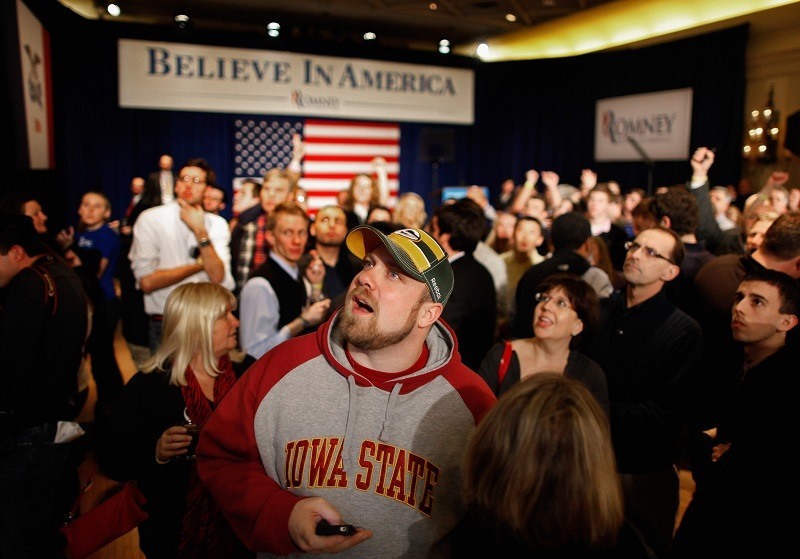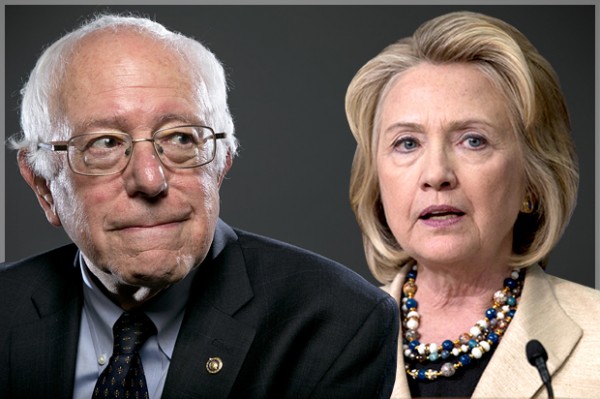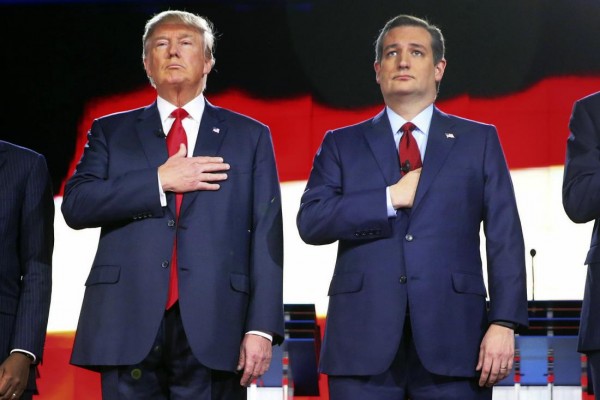
We know that Texas Senator Ted Cruz beat out Donald Trump for the Republican party in Iowa while Hillary Clinton just edged out Vermont Senator Bernie Sanders, but what does all this mean for the 2016 Presidential Election? Bernie Sanders has stated that Iowa was just the beginning of a ‘political revolution’, and Donald Trump is calling our ‘fraud’ on Ted Cruz.
As with everything in politics, nothing is ever as it seems, even with cold hard numbers leading the way, so our friends at Inside Gov looked at the numbers behind the Iowa caucuses to give us a more complete understanding of what happened in the weeks leading up to the first presidential primary results of 2016.
 The Democrats
The Democrats
After a night of too-close-to-call assessments from the news media, the Iowa Democratic Party officially named Clinton the winner on Tuesday afternoon. But Monday night, both Clinton and Sanders delivered a rousing, victory-tinged speeches to supporters in Iowa.
Toggle on the candidate’s name to see how each candidate performed throughout Iowa.
Of Iowa’s 99 counties, Clinton came in first place in 62 of them; Sanders was first in the remaining 37 counties. Former Maryland Gov. Martin O’Malley, who dropped out of the race Monday night, ended up a distant third in every county. He received less than 1 percent of the overall vote.
While Clinton’s win in Iowa is critical — especially since her 2008 loss there to then-Sen. Barack Obama delivered such a significant and surprising blow to her campaign — the barely-eked-out-victory doesn’t give her that coveted boost of momentum heading into the New Hampshire primary. If anything, Sanders’ strong showing in Iowa cements the idea that this will be a drawn-out slog for the Democratic nomination.
As the visualization shows, Sanders started out in the low double-digits in Iowa, climbing steadily in the summer and fall of 2015. On the day of the Iowa caucuses, he was down by 4 percent, according to data from RealClearPolitics. In that respect, although he didn’t win outright in Iowa, Sanders can claim victory in overcoming significant odds in the state.
With O’Malley out of the race, the upcoming MSNBC debate on Feb. 4 will be the first head-to-head matchup between Clinton and Sanders.
The Republicans
In a record-setting night, 186,874 people participated in the Republican caucuses in Iowa. After a winter of increasingly spirited exchanges between Cruz and businessman Donald Trump, caucus-goers came down on the side of Cruz. Of the 99 counties in Iowa, Cruz came in first place in 56 of them.
Toggle on the candidate’s name to see how each candidate performed throughout Iowa.
According to entrance poll data, Cruz won with significant support from evangelicals and voters who said the most important quality about a candidate is whether he or she “shares my values.”
Florida Sen. Marco Rubio came in third in Iowa, but his speech made it sound like he was celebrating a strong first-place finish. Although Rubio has fought against the assessment that he’s a Republican Obama — a young, first-term senator who rose quickly within the national party and harbors White House aspirations — Rubio’s turn at the lectern on Monday didn’t help quiet the comparison. His almost 12-minute speech was full of the soaring rhetoric and confident tone that characterized Obama’s time on the stump back in 2008.
Rubio told his supporters on Monday night: “So this is the moment they said would never happen. For months, they told us we had no chance. For months, they told us that because we offered too much optimism in a time of anger, we had no chance. … We rose up to the challenge of our time. We confronted our problems, and we solved them. And because we did, the American dream didn’t just survive, it reached more people and changed more lives than ever before.” Eight years ago, Obama said during his Iowa victory speech: “They said this day would never come. They said our sights were set too high. On this January night, at this defining moment in history, you have done what the cynics said we couldn’t do.”
What inspired the assertive delivery by Rubio? How well he did in comparison to Trump. As the visualization above shows, Rubio was in a distant third in Iowa in the six weeks prior to the caucuses. But according to the Iowa Republican Party’s tallies, only 2,262 votes separated Rubio and Trump, who finished in second place. In that respect, finishing third wasn’t the victory for Rubio — it was how close he was to finishing in second.
While many political prognosticators have said anything but a first-place finish would diminish Trump’s so-called winning brand, Trump’s showing in Iowa is actually quite remarkable considering that state’s heavily evangelical electorate. Only recently has Trump spoken about his faith on the trail; over the weekend, he scored a significant endorsement from evangelical leader Jerry Falwell Jr. And in the final days before the caucuses, Trump and Cruz both targeted evangelicals in Iowa.
The second-place finish for Trump also meant he got to flex another muscle: humility. The real estate mogul’s concise concession speech was a smart blend of congratulations to the other candidates and a positive look ahead to future primaries. It’s possible his gracious acceptance of a non-win could endear him to people concerned that his reactive personality doesn’t make him a good fit for the presidency.
Republicans will face off on Feb. 6 for their final debate before the New Hampshire primary, which will take place Feb. 9.



